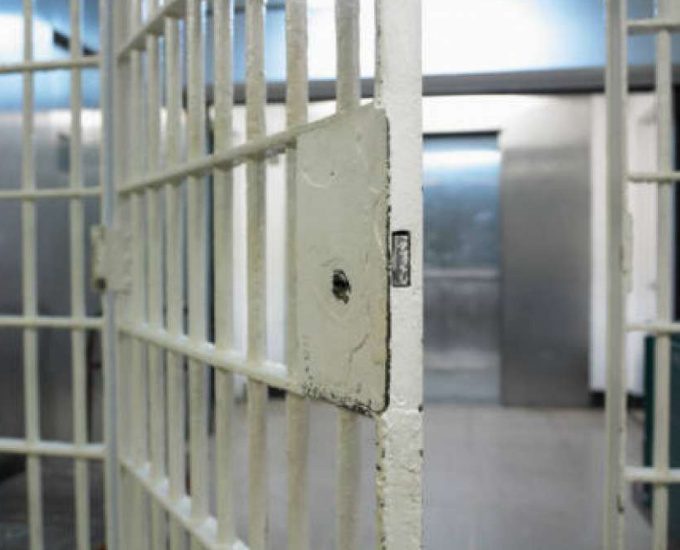
KJIPUKTUK (Halifax) – As infection numbers in Nova Scotia reach record highs, prisoner advocates are asking that the province vaccinate incarcerated individuals and correctional staff within the provincial prison system.
This demand is even more urgent as the province is considering another mass release similar to the one early on during the pandemic.
Such a prioritized vaccination was supposed to happen, but it never materialized. Earlier this year Dr. Strang announced that Phase Two of the vaccine roll-out would include “those who live in large group settings and those who work directly with them, including correctional facilities, shelters and temporary foreign workers’ quarters.”
All the organizations that we are working with have asked the province about this, with a lot of urgency, says Dr. Adelina Iftene, a member of East Coast Prison Justice Society (ECPJS), and a professor at the Dalhousie’s Schulich School of Law. “We haven’t received any response confirming that there is any plan whatsoever in terms of vaccinating incarcerated people at this point.”
This is in stark contrast to for instance hard-hit Ontario, or the federal prison system.
“People who may question this need to remember that COVID-19 is not just an individual issue. The idea with the vaccines is to minimize transmission in the community, and these are highly vulnerable populations who are going to be at very high risk of getting the disease and spreading it. Ensuring that these very vulnerable individuals get the vaccines is in many ways actually a better protection against COVID then receiving the vaccine yourself,” Iftene says.
Such a prioritized vaccination effort should also include workers of the Elizabeth Fry, Coverdale Courtwork and all other similar organizations who live and work with people who were recently released, she adds. For everybody who is released from prison, these are the main and only sources of support. These are front line workers, and yet they have been deliberately left off the list of prioritized employees, Iftene says.
Provincial government is considering another release of prisoners
“As COVID-19 numbers rise, we are aware of renewed government discussions about a mass release of provincially incarcerated people comparable to the 40% reduction in the jail population a year ago,” a press release issued by the ECPJS earlier today states.
That is another reason why vaccination is so crucial, Iftene says, who hopes that the province will indeed follow through on another mass release.
In the very early stages of the pandemic there was quite an unprecedented action from the government working together with support organizations to release individuals. These were individuals who had very short time left on their sentence, and individuals serving weekends. As well, the court system released people on emergency bail. Altogether, the provincial prison population was reduced by some 40 percent. For reasons that were never explained, the prison population today is back at pre-pandemic numbers.
“Everything about this program was positive and well regarded, there were no incidents, the crime rate did not increase by any stretch of imagination. Most individuals who did return to prison had breached administrative orders of their release, they didn’t commit new offences, they didn’t endanger anyone,” Iftene says.
So why not continue that program?
“I think people in charge just got comfortable again. All the efforts that were put into that program have just been forgotten. Now the problem is that it is going to require so much more effort, starting all over again from zero,” says Iftene.
At the time the province was criticized for not stepping up to support the organizations who all of a sudden were expected to manage this influx of newly decarcerated people looking for help. Almost all of the money came from the feds, and that source has since dried up.
See also: Yet another NGO forced to pull plug on program providing emergency shelter in hotels
ECPJS cautions that shouldn’t happen again.
“No efforts have been made to support the readiness of our aligned service organizations — Elizabeth Fry Societies, Coverdale Courtwork Society, or John Howard Society – who came together during the first wave to facilitate housing and other supports and otherwise enabled compliance with public health protocols for those subject to rapid release,” the press release states.
One of the most concerning (and puzzling) things in all of this is the complete silence coming from the province.
“Lockdowns and other restrictions have been maintained throughout the year inside provincial prisons and have been much worse than usual. People aren’t allowed visitors. We have been trying to get back into the prisons to talk with people, even during the time when we weren’t in the middle of an outbreak. It hasn’t been happening. We didn’t even receive a response,” Iftene says.
Update, April 26, 2021. In response to a reporter’s questions at this afternoon’s briefing Dr. Strang announced that as early as next week the province will start vaccinating people who are incarcerated at provincial prisons, as well as correctional staff. Dr Strang did not mention the frontline support workers of Elizabeth Fry, Coverdale Courtwork or others. Obviously none of this was shared with ECPJS, despite their urgent requests for information.
Check out our new community calendar!
With a special thanks to our generous donors who make publication of the Nova Scotia Advocate possible.
Subscribe to the Nova Scotia Advocate weekly digest and never miss an article again. It’s free!




Prisoners need to be released from the likely exposure of the virus. These men, women and children were never sentenced to live the way they are in fear of dying daily. This is not justice it is just wrong! Release all prisoners now.